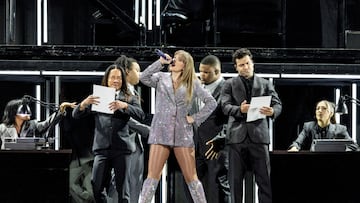DOJ wants to break up Live Nation and Ticketmaster’s monopoly: What does that mean for concertgoers?
DOJ files a class action lawsuit against Live Nation and Ticketmaster. What this could mean for concertgoers.


Ticketmaster made major headlines last year as Taylor Swift fans battled on the website to purchase tickets to the pop star’s international tour. The company was accused of using its monopoly power as the only retailer of tickets for the tour to drive prices up and create a chaotic, confusing, and unfair market for consumers. Live Nation merged with Ticketmaster in 2010 under the name Live Nation Entertainment Inc, and the pair have been subject to an investigation after the issues faced by concertgoers (beyond those experienced by the Swifties), became impossible to ignore from a consumer protection perspective.
“The Justice Department, along with 30 state and district attorneys general, filed a civil antitrust lawsuit against Live Nation Entertainment Inc. and its wholly-owned subsidiary, Ticketmaster LLC (Live Nation-Ticketmaster) for monopolization and other unlawful conduct that thwarts competition in markets across the live entertainment industry,” reported the DoJ in a press release on Thursday.
A policy proposal to benefit young voters
The lawsuit aims to “restore competition in the live concert industry” and “provide better choices at lower prices for fans.” These sorts of actions are novel in Washington, where the monopoly-like power many companies wield against consumers goes unchallenged. However, they can be politically powerful because if the DoJ fails to hold Live Nation accountable, consumers will be subject to the same market conditions and face high ticket prices.
Assistant Attorney General Jonathan Kanter Delivers Remarks on Lawsuit Against Live Nation-Ticketmaster for Monopolizing Markets Across the Live Concert Industry
— Antitrust Division (@JusticeATR) May 23, 2024
🔗: https://t.co/zwVfpKYy9l pic.twitter.com/SR6PGuNDlL
Related stories
Breaking up the monopoly power of Ticketmaster and Live Nation, concertgoers should see the sector modernize and smaller companies grow their share of the market, breaking up the power of the two companies.
For many young people, these issues are important, and as an election year, the lawsuit could be an attempt to attract voters from a demographic whose support for the president is waning. The US Census Bureau estimated that 51.4 percent of voters between 18 and 24 voted in 2020. This was the lowest participation rate among age groups, highlighting the importance these votes had in pushing then-candidate Biden over the finish line to secure his win for the White House.